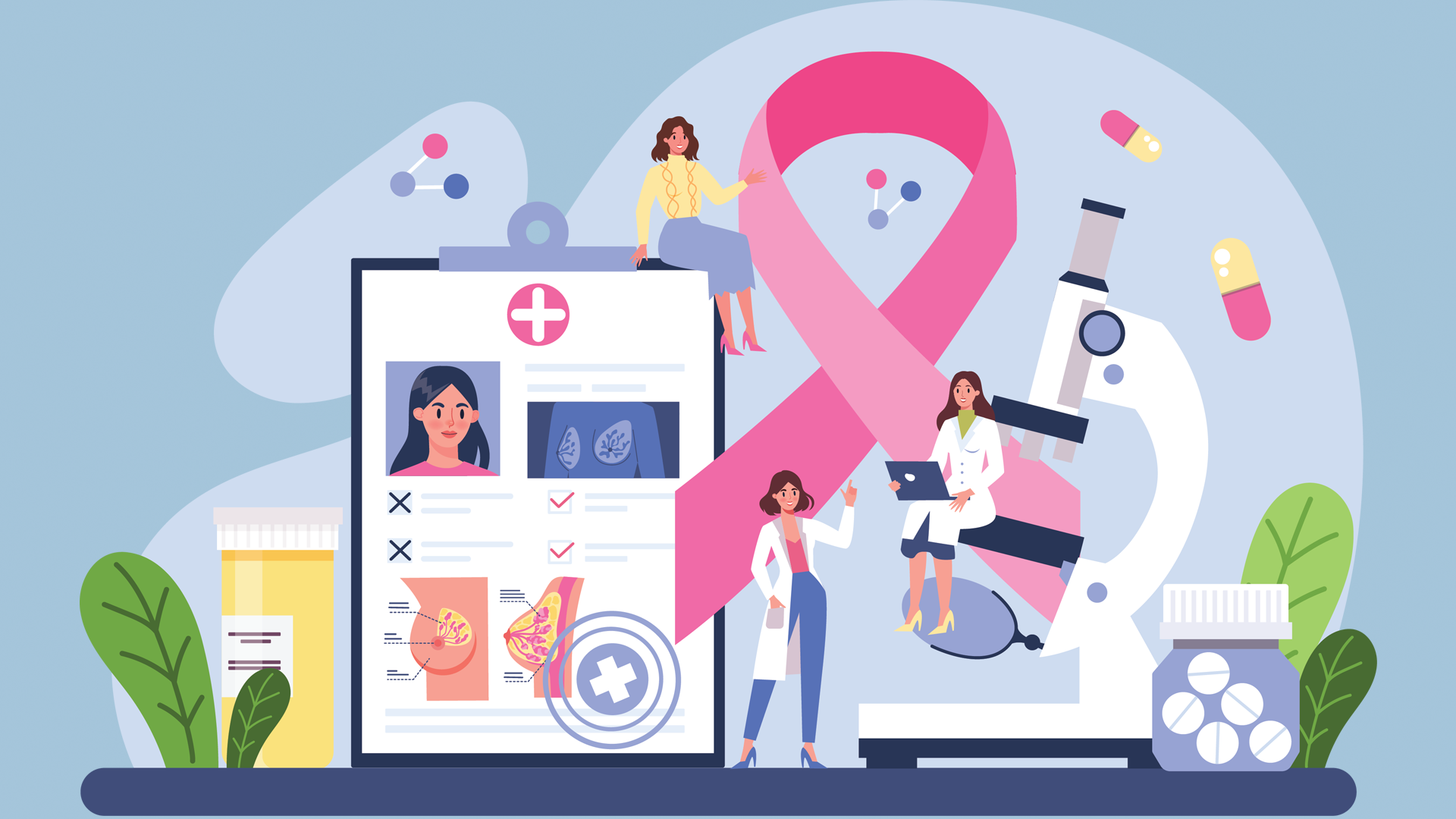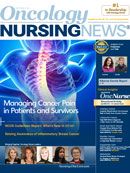Raising Awareness of Inflammatory Breast Cancer
Nobody Is Listening: Stories of Inflammatory Breast Cancer chronicles the accounts of women affected by inflammatory breast cancer, the most aggressive type of breast cancer.

Nobody Is Listening: Stories of Inflammatory Breast Cancer chronicles the accounts of women affected by inflammatory breast cancer, the most aggressive type of breast cancer. The book is coauthored by Massimo Cristofanilli, MD, director of Jefferson Breast Care Center, and patient advocate Patti Bradfield, founder of the Inflammatory Breast Cancer Foundation. Oncology Nursing News sat down with Cristofanilli to discuss the book and his efforts to raise awareness about this deadly disease.
What is inflammatory breast cancer? What makes this disease so deadly?
Inflammatory breast cancer (IBC) is quite different from any other type of breast cancer because instead of presenting with a lump that can be detected by mammogram, it usually is seen in a matter of a few weeks with redness and swelling. IBC represents between 3% and 5% of all breast cancers, but statistics are not very accurate and epidemiologic studies have been made difficult by the clinical definition of IBC. This is a much higher-mortality disease, usually between 40% and 50% survival with a high risk of recurrence in the chest wall and lymph nodes in the first 2 to 3 years.
Within 18 months, most of these patients are lost to the disease. IBC is an aggressive disease that typically affects a younger population (aged 50-52 years) compared with standard breast cancer (aged 57-60 years). The most aggressive phenotypes are represented more frequently in IBC than in regular breast cancer.
How do the experiences of a patient with IBC differ from those with other types of breast cancer?
Typically, a patient wakes up one morning and they have a swollen breast and feel that it may be an infection. A patient will then go to their primary physician or OB/GYN and usually receive antibiotics. Obviously, antibiotics do not help a patient because this is not an infection: it is cancer. It takes a number of weeks before a patient actually receives imaging, ultrasound, mammogram, MRI, and biopsy. During this process, or following it, a physician will realize that the tumor is already advanced. In these cases, a patient will need to go and look for appropriate care—potentially a surgeon to perform a core biopsy or skin biopsy, followed by a medical oncologist for preoperative or neoadjuvant chemotherapy. There is no chance to do surgery upfront for this patient, and all patients will receive a mastectomy, with no opportunity for an immediate reconstruction or more conservative surgery.
All patients also will receive radiation therapy that is more comprehensive and usually larger than typical radiation therapy for a more localized form of breast cancer.
The treatment of IBC is more complex and usually prolonged, with a number of possible complications from more aggressive treatments.
These patients always live with the fear that this tumor has advanced past optimum treatment and can come back. If the tumor does not completely disappear following neoadjuvant chemotherapy, there is a very high chance that the tumor will come back in the skin, lymph nodes, and distant sites. A patient with IBC lives with a constant fear of disease of which little is known, compared with standard breast cancers.
Who is the intended audience for your book, Nobody Is Listening: Stories of Inflammatory Breast Cancer?
The intended audience is all women who have had IBC and never had a chance to tell their story, as well as women who are not aware of this disease. Most of the breast cancer that we talk about is a breast cancer with a lump with a great chance to be detected by mammogram. We hear about how important mammogram screening is, but now we know that there is a different type of breast cancer that can be very aggressive and kill women rapidly. There remains a need to understand the real impact of IBC. When I started my effort to raise awareness of IBC, several patients told me that they went to the Susan G. Komen Race for the Cure several years ago, and no one knew about IBC.
If the professionals, the ones who deal with breast cancer every day, are not talking about IBC, I think we have a problem. We hope that even physicians, general practitioners, and healthcare providers would realize the impact of this type of disease in our society.
Was there a particular event or patient that inspired the writing of this book?
Patti Bradfield decided to take on this project for her daughter, whose life was lost to IBC.
There is plenty of explanation in the book about how her daughter’s IBC diagnosis completely changed her life. Once Patti and I met, it became clear that we had the same mission.
My commitment was to progressing the treatment of IBC, but at the same time, I agreed with Patti that we needed to do more for education and awareness.
What kind of impact do you hope this book has?
I think the hope is to start a serious conversation about what we should do about educating women, primary care physicians, and nurse practitioners. These women deserve the best chance possible when this disease presents itself. One day, if we have enough resources, we can find out what causes this disease and how to prevent it. That’s a dream, but I think it is something that we need to hang on to.
What is the most important takeaway on this subject for the oncology practitioner?
Listen to your patients. If they come to you with something that is totally unusual, you have to consider the worst and try to help in a much quicker way. I have seen patients referred, given an antibiotic, then sent to the imaging center for a mammogram, and eventually sent for a biopsy. This sometimes takes weeks, if not months. This is a disease that is very aggressive: be aware of it, be aggressive in trying to look for help and information. It can be a very deadly situation for these young women.

Workflow, Educational Tools Improve Use of Silicone Film to Prevent Radiation Dermatitis
April 25th 2024Tools to educate oncology nurses and patients on the use of Mepitel film to prevent radiation dermatitis has improved the workflow around its introduction to patients with breast cancer, as well as its application and maintenance.
Olaparib Plus Chemo May Not Improve Outcomes vs Chemo Alone in BRCA Wild-Type TNBC
April 23rd 2024Patients with BRCA wild-type triple-negative breast cancer treated with olaparib on a gap schedule with chemotherapy did not experience improved responses compared with chemotherapy alone in the neoadjuvant setting.
Nurse Practitioners Weigh in on Data From the San Antonio Breast Cancer Symposium
January 16th 2023Loyda Braithwaite, MSN, RN, AGPCNP-BC, AOCNP; and Jamie Carroll, APRN, CNP, MSN, highlight presentations from the 2022 San Antonio Breast Cancer Symposium that will influence oncology nursing practice.




